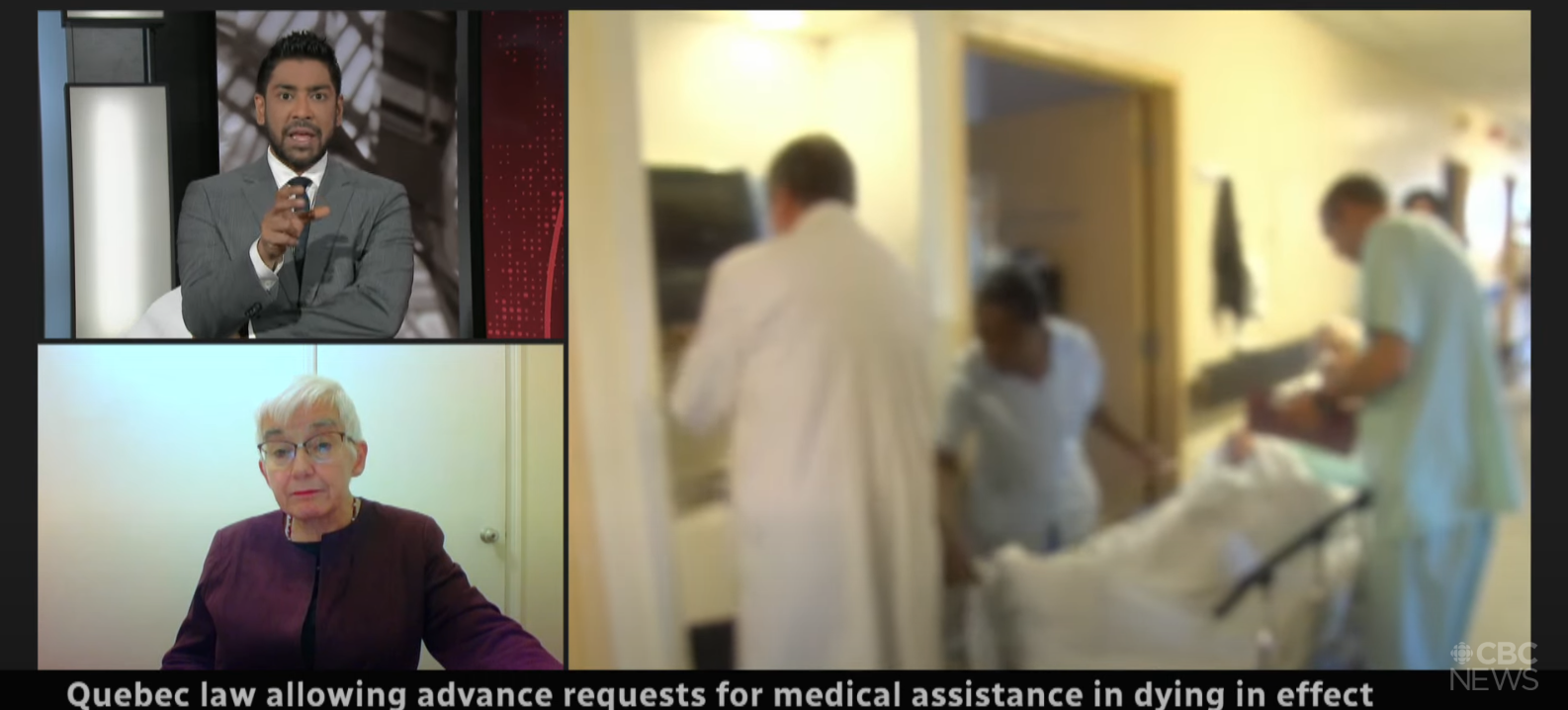Professor Pierre Deschamps recently published an excellent article (in French) on the topic of medical aid in dying. The article was published in “Les Développements récents”, a publication of the Barreau du Québec. The article, entitled L’aide médicale à mourir ou l’instrumentalisation du droit à des fins politiques – Lorsque la fin justifie les moyens (Medical aid in dying or the instrumentilisation of the law for political purposes – when the end justifies the means), was published in Volume 393 – Protection of vulnerable people (2015). It is possible to read it online: http://edoctrine.caij.qc.ca/developpements-recents/393/368215261
Professor Deschamps uses concept and theories from philosophy and psychology to support his argument. He discusses the “banality of evil” and “lies and deception in politics”, notions from the work of political philosopher Hannah Arendt. He also uses the concept of cognitive dissonance that was introduced by Leon Festinger.
The author offers a critique of legislative orientations toward euthanasia, discussing both medical and judicial logic. He speaks also of the manipulation of words and ideas.
It is a must-read for anyone interested in understanding how Quebec arrived at the legalisation of euthanasia under the euphemism “medical aid in dying”.
Read “Medical aid in dying or the instrumentilisation of the law for political purposes – when the end justifies the means” (in French only) on the site of the Centre d’accès à l’information juridique.
Article’s table of contents:
- Introduction
- Presentation of conceptual elements
- The thought of Hannah Arendt
- Banality of evil
- Absence of thought
- Use of euphemisms
- Lies and deception in politics
- Banality of evil
- Leon Festinger’s theory
- The thought of Hannah Arendt
- Critic of legislative orientations
- Basic logical frameworks
- Medical logic
- Judicial logic
- Implantation techniques
- Word manipulation
- Creation of a neologism
- Opacity of definitions
- Distortion of the meaning of words
- Idea manipulation
- Fusion of laws
- Accentuation of the benefits
- Minimisation of the consequences
- Obscuring the disturbing aspects
- Denyial of reality
- Word manipulation
- Basic logical frameworks
- Conclusion

